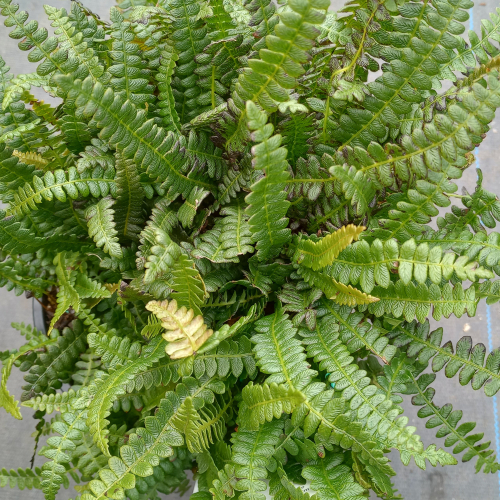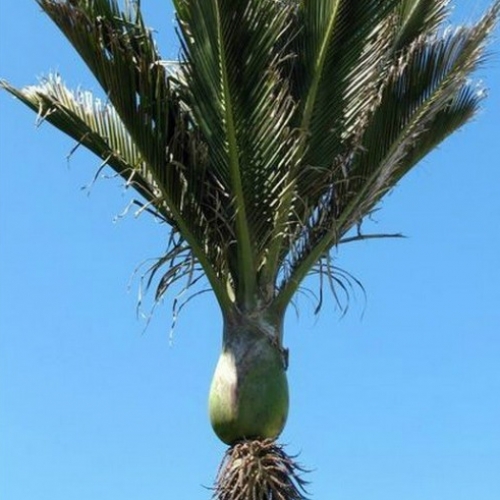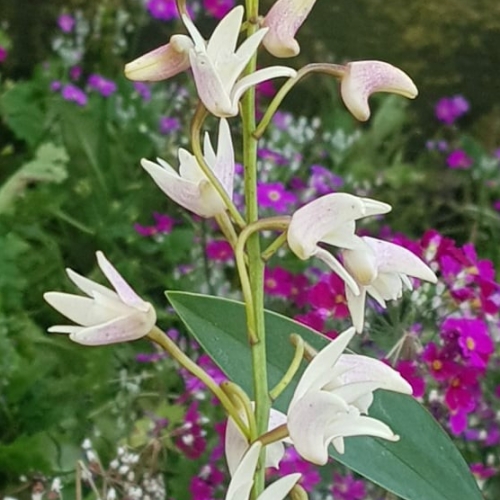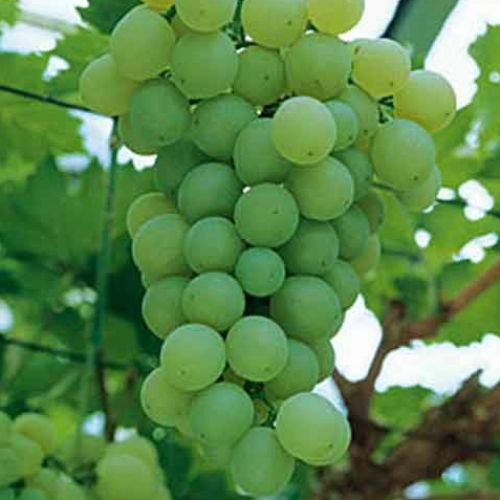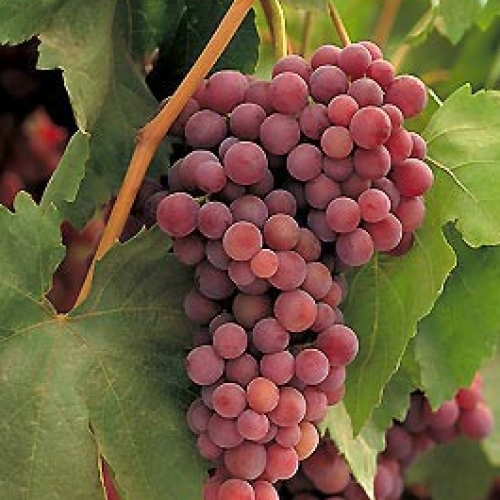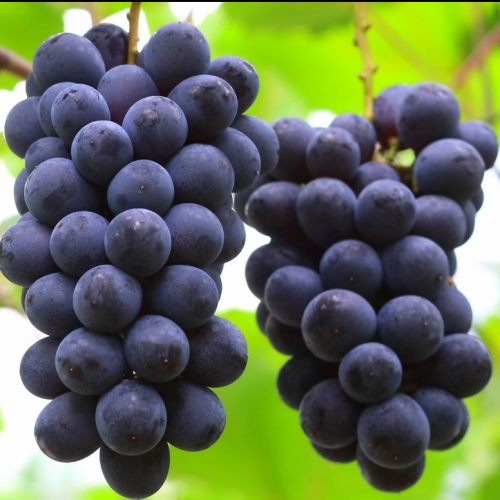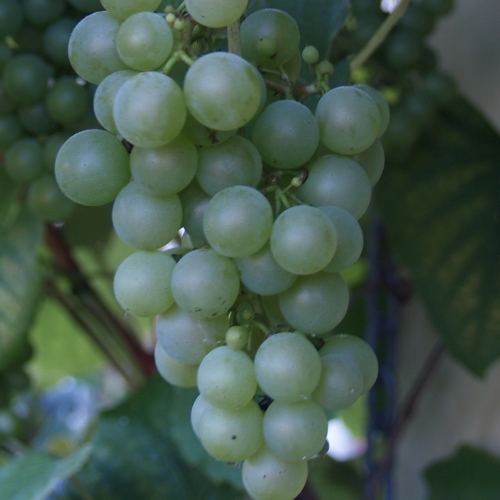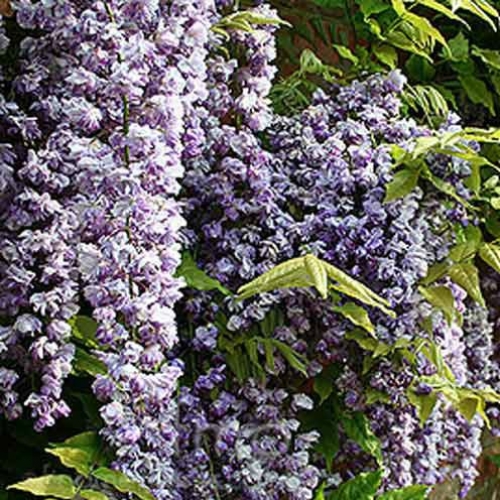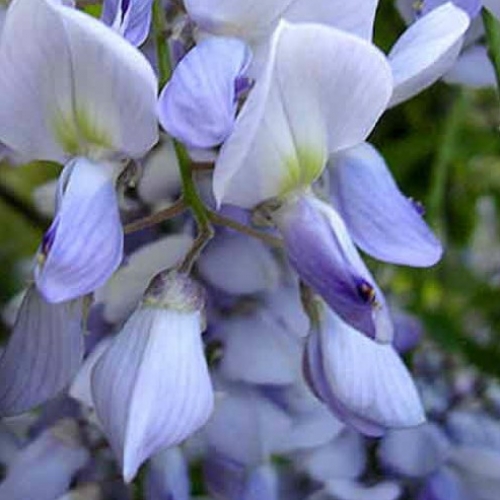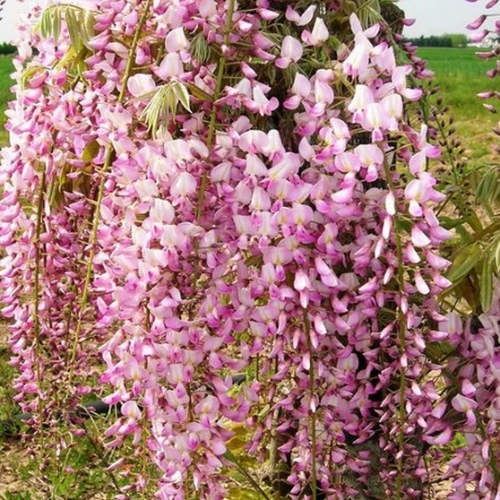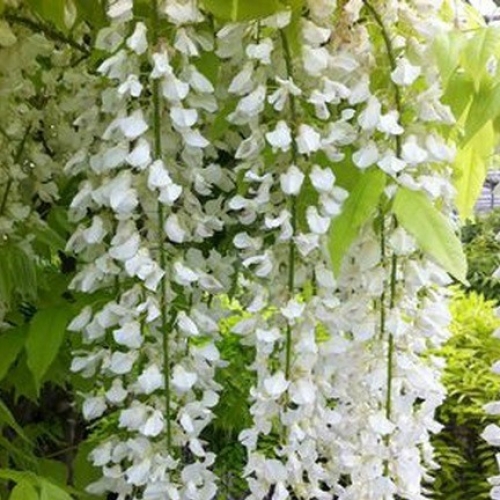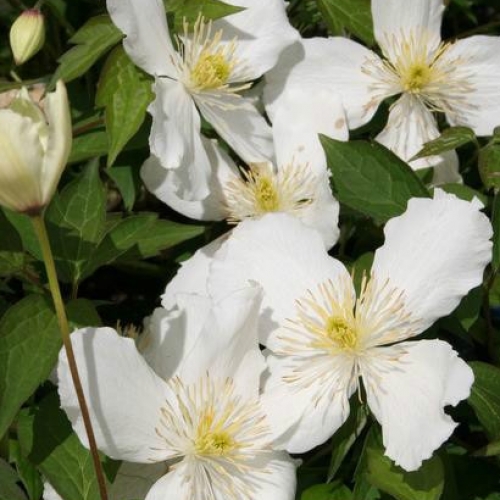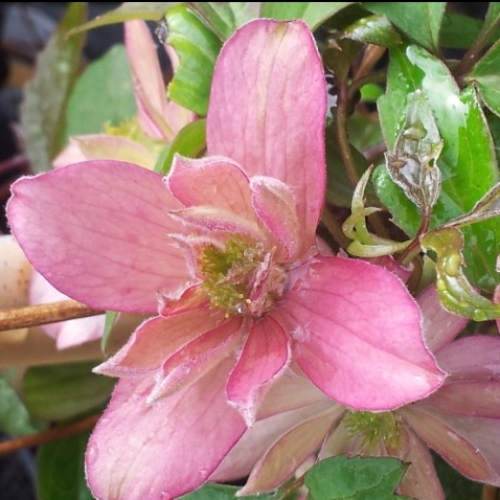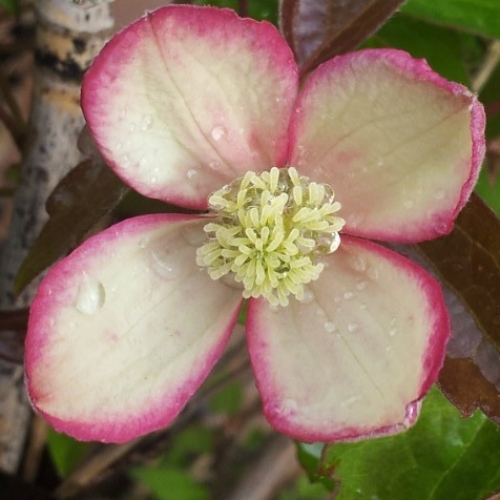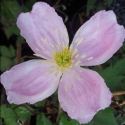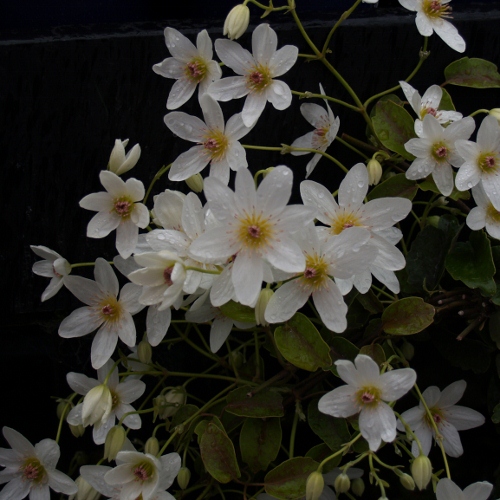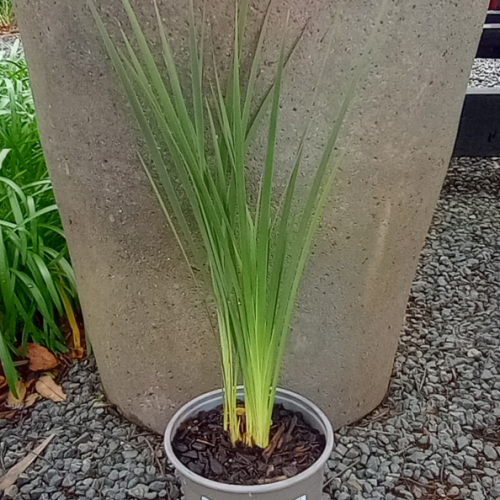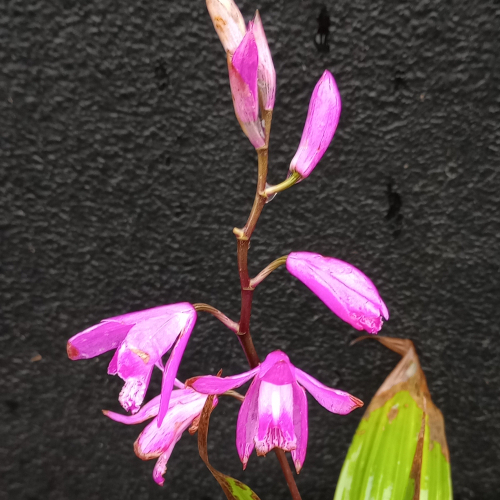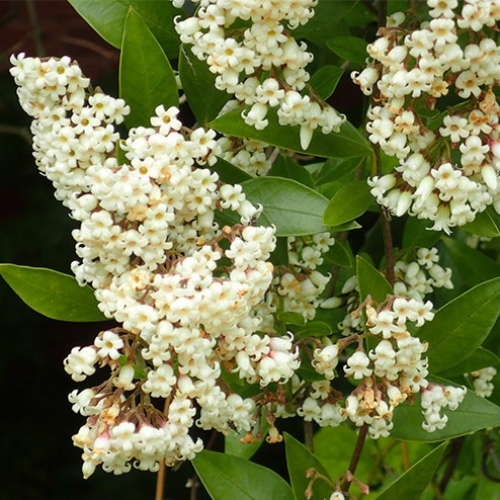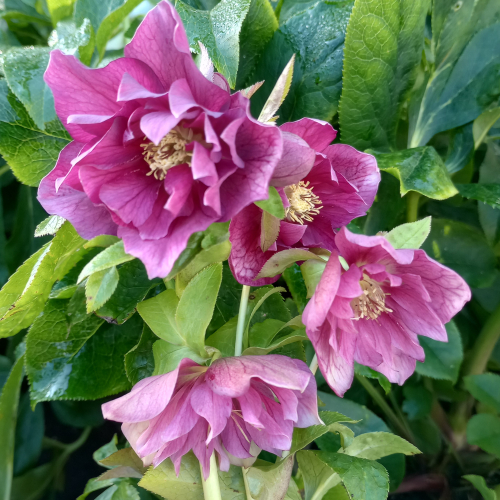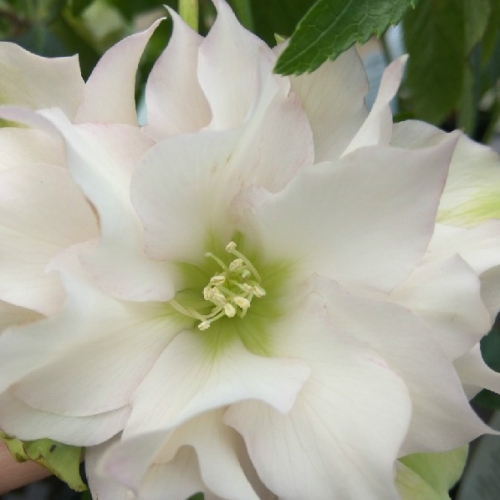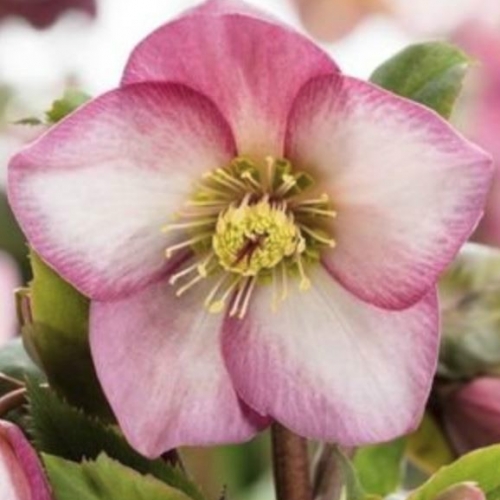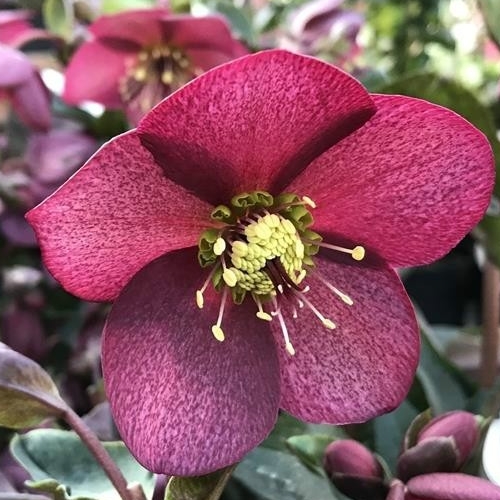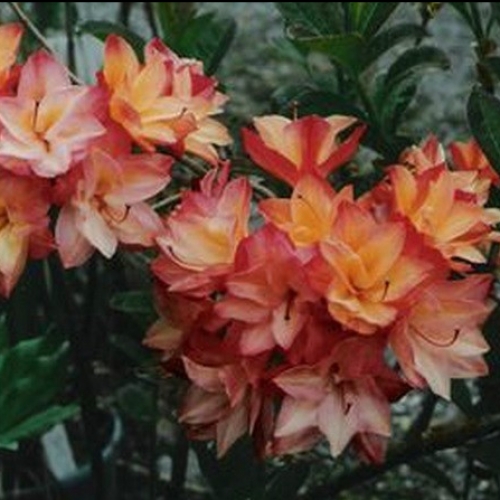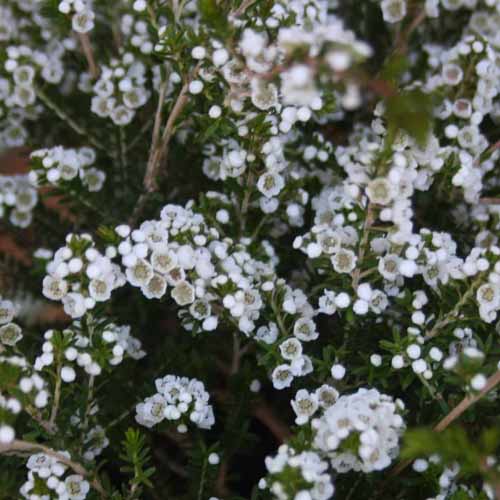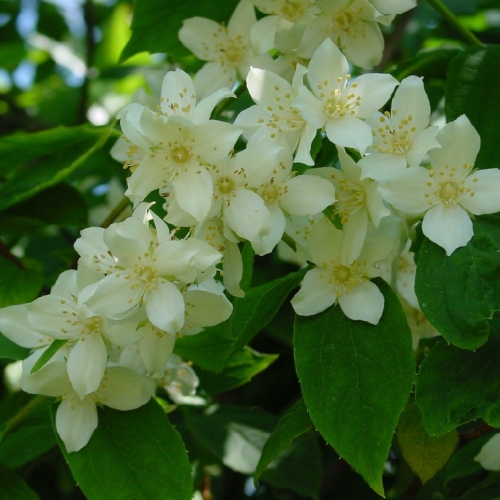Saturday 21st September, 2024
Hi
Climbers generally need a frame and some training to keep them under control
We have the coolest pergola at home which, for many a year, has had this gnarly old
grape grown over it. I really like the pergola as it has such good form, almost classic, and so we are planning to get one for the garden centre. Then we will have a purpose built shade space and can extend our range a bit more into
ferns,
palms (e.g.
Nikau) and outside orchids such as
Dendrobiums and maybe even a few bromeliads. We will see.....! It's quite exciting to have a new garden centre project as it may even include an extension to our display garden, which will be something new for all our regulars customers.. watch this space!
The pergola in the nursery is going to have a slatted roof or top to provide shade and that gave me the idea to do the same for the one at home too, so we can remove the overgrown grape. There was no form as to where it grew and as such, it just covered the whole space. We would get up there several times a year to deal with the runners (not getting any younger) so as to keep some control and prevent it from taking over. Although it provided shade for Tony's orchid collection there wasn't enough light going on to produce good grapes. Hopefully the slats will do the trick.
Getting back to the
grape vines, we also have several growing around the side which have been trained like an espalier. These have also been a tad neglected and I will revamp them (or plant new ones) thus providing shade from the northern side.
A bit of a Googling confirms that I am more familiar with spur pruning, rather than cane pruning, which I imagine is carried out by vineyards. There is some terminology that is worth knowing. The framework part that is more than two years old is called a cordon and for those that spur prune, this means cutting back the previous season's wood to leave short shoots, each with 2-3 good buds, which are then called spurs. It's these spurs that produce the next fruit crop.
In the case of cane pruning, you leave 2-4 of the previous season's canes and remove all the rest. In the case of the vineyard scenario, last year's growth is cut back to the head, leaving 2-4 canes from which the fruit is carried.
The long and the short of it is that you grow a framework (cordon) and from that you either leave spurs or canes to carry the next season's crop. Essentially, a well-cared-for grape vine will look like the classic espalier every winter after pruning and not some random mess. In conclusion, the most fruitful wood comes from one-year-old canes and I guess spurs are just short canes.
Growing your own Wisteria as a tree
I noticed that the
Wisteria in the garden centre are either in flower, or about to be, and it reminded me of the ones in our garden that have been trained as trees. One is getting very old, well for a plant anyways lol, and we have had to start training a couple of replacements. Not surprisingly, the method is somewhat similar to that of the grape vine.
One does need at least a secure pole to the height that you want the
wisteria to branch from. Better still is a secure pole with a round frame on top like a clothesline or washing line. The ones here in the garden are made from a deer fence pole and a wagon wheel secured on the top, but let your imagination sort that.
Plant a new wisteria plant at the base and then train a runner to the top of the structure. If you want to be really fancy then take three runners and plait them all the way to the top as they grow and this will give you a fancy plaited trunk. Once a the top of the frame, remove the growing point to force the lower buds to grow so that you have more runners that can be tied down over the frame like a star fish. Spread these runners around your circular frame and this will create the tree structure, especially because as these runners age, they will thicken and become branch-like.
Roll on the flowering phase and the idea is that the beautiful flowers hang from below the structure like an amazing waterfall of flowers. I saw a picture years ago of this and was so inspired that I created my own. It's worth noting that there is some maintenance involved, also that the flowers seem to come from the same little branches or spurs each year so you have to be careful you don't chop these off when doing the pruning.
Once flowering is done, your wisteria will put on a whole lot of runners or vegetative growth out (like most plants do) and this slows as we get towards Christmas. That's the time of year when I remove the runners leaving approx 5 buds, or 10cm of growth of the current season's wood, for new flower initiation or runners for additional frame work if needed. I always do a follow-up prune in Winter to make sure that we get all the runners and this keeps the Wisteria in complete control.
Don't think for a moment that this is the only way to grow these as they can look equally amazing along a fence or even a verandah. I do suggest that you follow the rules of creating a framework that you then maintain, as
Wisteria can become very unruly, just like grapes can, if left to their own devices.
Seems this is all about climbers!!! Check out the Clematis of the Montana kind
I would say that if you are after a tough and hardy climber to cover a wall, pergola or to grow over something then go no further than checking out the
Clematis of the
Montana kind. These are robust and absolutely stunning in flower. The flowers are typical clematis in style, small to medium in size, but very voluminous in quantity. Usually in shades of pink, though also white. There are quite a few to choose from.
Snowflake This beautiful deciduous climber is deservedly popular. As the new leaves just start to emerge in spring the tight white buds open to large snowy white blooms that smother the whole vine for a breath-taking display.
Ross Star A great climber with a fantastic Spring floral display. Antique pink flowers adorning gorgeous copper leaves.
Pied piper Small, flattish, faintly scented, semi-double, flowers that are pale creamy yellow at the centre of the tepal, shading through pale pink to a deep pink margin.
Giant Star has masses of delicately scented, large, semi-double soft pink flowers with pale yellow stamens. Blooms throughout spring. Its leaves emerge bronze-brown and then age to dark green.
Have to do a plug for our native Clematis
There are quite a few native
Clematis but
paniculata is probably the most well-known or common one that you see in-flower in the bush along the roadside with its pretty star-like white flowers.
Paniculata is evergreen with attractive glossy leaves and when it gets going, will climb to the top of trees to spread itself out there in the sun and form a beautiful carpet of white flowers in the spring.
We used to have one in the display garden that flowered every spring atop the old Lawson tree, but it is no longer there. In my mind it would be cool to have this again in the nursery garden, or perhaps several, and I must find a place at home to grow this beauty.
A fun fact about
Clematis is that they belong to the buttercup family (Ranuculacaeae) and when you look at the flower structure I'm sure that you will see why.
For the gardener that likes to have everything
Dierama or Angels Fishing rod We don't have these often. A striking perennial that forms arching stems which hold nodding bell-shaped rosy-purple flowers 4-6 cm long. Leaves are held in clumps and are long narrow and evergreen. Great for waterside plantings and the back of a perennial border. Extremely hardy and tolerant of sunny sites. Also a
light pink form that I don't think that we have ever had before.
Bletilla striata, aka
hyacinth orchid or
Chinese Ground Orchid is one of the easiest to grow. Bright green, deeply ribbed, grass like leaves with tall flowering stalks gorgeous detailed, striped violet-pink flowers in early summer. Grow in light shade, under trees, in lawns or in pots.
Parsonsia Heterophylla appropriate choice for this email A Native climber. Kaihua is our native jasmine. In spring through summer it covers itself in lightly fragrant small cream flowers. Like some of our natives, the juvenile foliage is markedly different to the mature adult foliage. Found at the margin of lowland forest areas throughout NZ. Evergreen.
Winter roses (Helleborus) all 20 % reduced. It's time to make way for some of the spring perennials
Winter Rose double red and
double white Frilly outside white petals with a green eye. These delightful doubles will light up a shady spot under deciduous trees. Get the full effect by planting in mass. Happy in semi-shade in humus rich soil that is well drained.
Helleborus Ice N Roses Rose,
Helleborus Ice N Roses Red These hellebore will flower tirelessly through winter and well into spring producing gorgeous rose pink, outward facing blooms, held above the leaf. These will look great providing gorgeous winter colour in your garden or check them all out by following the
link.
There is so much choice of colour and flowers all coming on right now and it's difficult to choose what to write about... The
Azaleas are all looking pretty stunning not to mention the
Thryptomemes in full flower.. then there are the deciduous shrubs like
Deutzia,
Philadelphus,
Viburnums and
Weigela that are all about to pop for the season.. it's like being in a candy shop and it all moves so fast at this time of year.. we can hardly keep up.
I really have to get into my vege garden this weekend and empty it out, weed it and banish the rabbit that has found out that he/she can jump up on to my raised beds to eat all that is available.. perhaps by having nothing in it for a couple of weeks, is the plan. Or maybe I need to set up an electric fence which I have done before. Labour week is kinda next on the spring planting agenda and I want to be ready for tomatoes and all those other more tender vege plants.
Daylight saving starts in around 10 days time and then we will be into dark mornings and longer evenings. Hope that the weather takes note and that we have some more settled and fine days rather than the horrendous squalls and winds that have been the norm of late. On your calendar the Taranaki garden festival is coming up from the 1st to the 10th of November. We went last year and had a lot of fun and are planning to enjoy a weekend away again exploring gardens and getting new ideas.
Another weekend has just rolled in ... have a fab couple of days.
Cheers from Lloyd, Tony and the Wairere team.
.jpg)
